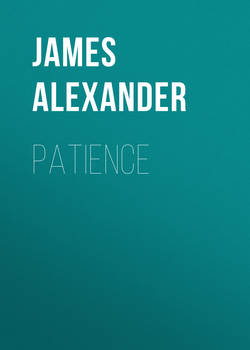Patience

Реклама. ООО «ЛитРес», ИНН: 7719571260.
Оглавление
Alexander James Waddel. Patience
ADVERTISEMENT
PATIENCE
Отрывок из книги
Some words which are often in our mouths are, nevertheless, but little understood; and some virtues which we are continually praising, are hardly ever put in practice. This is as true of patience as of any thing else. Every man needs it, every man knows he would be the better for it, yet every man falls short of it. This, I suppose, was one reason why the apostle James teaches so emphatically concerning it,
It would seem that the "twelve tribes scattered abroad," to whom this apostle wrote, were in trials and needed comfort. For the very first words of his letter are as if he stood over them and said, Be of good cheer! "My brethren," says he, "count it all joy, when ye fall into divers temptations," i. e., trials. These troubles tried their faith (v. 3,) and "untried faith is uncertain faith." The result of these trials of faith is patience. The very word is derived from "suffering,"1 and if there were no pain there could be no patience. If then patience is good, trials are good. And the great caution to be observed under such dispensations is, that we lose not the fulness of the benefit; that we content not ourselves with half the mercy; that we stop not short of the entire grace; for we may suffer and yet not profit; therefore, says the inspired teacher, "Let patience have her perfect work."
.....
In its simplest form, patience is a calm and unshaken state of mind, strongly bearing up against a present burden of distress. This may exist without religion. A Stoic or a western savage may endure pain without a murmur. Malefactors have stoutly faced the torments of their penal death. In respect to this, the natural temperament of human beings differs. Some can naturally bear more than others. They have more rigid fibre, or less shrinking nerves, more robust health, or smaller sensibility. The degree of pain is to be measured, not by the force of the blow, but the power of resistance. That which would crush a reed shall leave no mark upon an oak. When pain comes, however, it is well if we have even natural means of enduring it. But practice, discipline, and exercise add vastly even to this natural fortitude. Fresh soldiers and new recruits quail and fly, but the veteran has looked death in the face. He who has endured once, can endure again. Still more efficacious is the operation of inward principle, adding moral motives to the barely natural power. Education has this for part of its work, to teach the young to bear some burdens, not to fall back at every alarm, nor cry out at every pang. Stern determination will help one to sustain what might at first have seemed intolerable. This is remarkably the case in great and sudden pangs of anguish, for which a resolved mind has prepared itself.
Though pains of mind are worse than pains of body, they also may be endured by some with hardihood and tranquillity, and this we call fortitude, and in some circumstances patience. By great skill and self-control in managing the thoughts and detaching the attention from distressing objects, some are able, to a degree which at first might seem impracticable, to keep up quietude, self-possession, and even a show of cheerfulness, under complicated bereavements, mortifications, and griefs. All this may enter into the Christian's patience; but all this falls infinitely short of its "perfect work."
.....